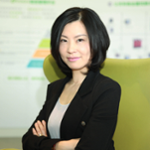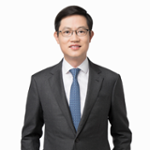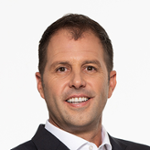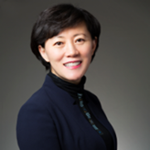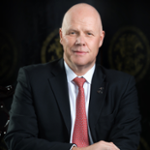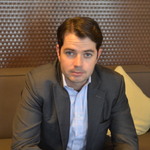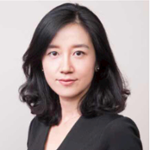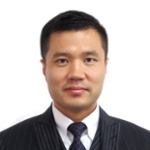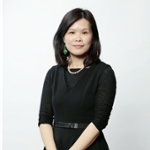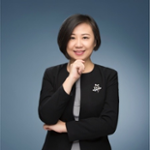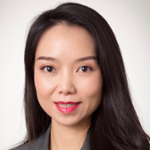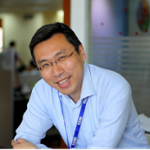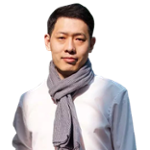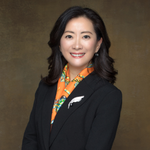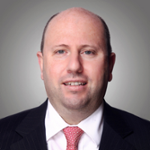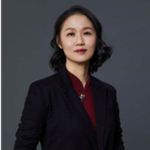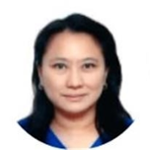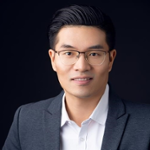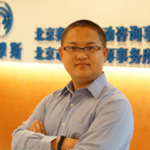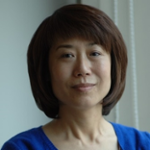- Registration
- Opening by HR Forum Leadership: Story of the Day & Conference Overview
Charise Le•Charles Shao•高琳This session will be conducted in an interview format by Gao Lin and the HR Forum Co-chairs, addressing the following key points:
Brief introduction of AmCham HR Forum and HR Conference
Overview of the conference theme – Explaining the topic and previewing the day's highlights
As a senior HR practitioner, what are your observations of the HR changes and transformation over the year? How do you view HR digitization?
What are your top three challenges and what are your top three priorities for the upcoming 1-2 years? - Future of Leadership: Self-disruptive Leaders
Michael DistefanoDisruptive forces are driving the future of work. Following the seismic shifts caused by globalization, innovations in technology have revolutionized the idea of a competitor landscape, while digitalization has transformed how industries operate. To ensure organizations succeed in a rapidly changing business world in the years ahead, a new kind of future-ready leader must take priority. Current models of leadership go some way to answering this, but research by the Korn Ferry Institute reveals the ideal leader for tomorrow’s disruptive business environment: The Self-Disruptive Leader.
- HR Transformation: A dialogue with HR professionals, senior executives and external observers
Wang Annie•Brice Péan•Simon Webb•Laura Wei•于晨 JohnnyBusiness growth today are challenged by many disruptive forces, both external and internal. Nonetheless, the requirements for organizations to be more accommodating for growth targets, operational models, conglomerates of technological capabilities and diverse workforce are more stringent to sustain business growth while managing change.
HR as a key corporate function and key partner for many business decision-makings can play a proactive role to drive corporate capabilities in manage transformation. Many HR leaders may take bold actions to redefine the HR models, HR capabilities and mentality, and implement the HR practice supported by emerging technologies, etc.
In addition to keeping a good tradition of our HR Conference of staging dialogues between HR leaders and corporate decisionmakers, we also added this year external views from the HR consulting practice to share their visions on how to position “future-looking HR” in an organization, how can the HR function be transformed to be a better growth partner to drive the development of people, an organization and business. - Coffee Break & Networking
- Culture Transformation: Staying the course as a partner of culture change
Charise Le•Michelle Zhang•Janet Chen•Melody Xu•Xing HuangCulture is one of the fundamental pillars of an organization, and can be a helpful check on many different aspects of operational effectiveness, employee engagement, decision-making, and business value creation. However, the nature of culture also speaks to the anchoring effects of an organization’s history and relationships amongst its peers, thus can be one of the biggest barriers or accelerators for disruptive transformation. Transforming an organization in order to compete in a digital era requires leadership and collaboration to change mindsets, recreate values, establish beliefs, and enable behavior to get work done successfully but in different ways. While transformation often results in a better outcome, it can also cost an organization in unexpected ways.
HR leaders in this panel will share their insights on how to measure key cultural transformation and manage challenges in transforming culture for managerial, people and external success in a digital age, and suggest capability development HR ourselves may need to pay attention to and support they need to be a partner in the course of culture transformation. - Pre-lunch sharing: Digital transformation for HR practice
Charlie Zhai - Buffet Lunch
- Post-lunch sharing
- Keynote Speech: What To Expect From The New Workforce
Leo HanWith most millennials now well into adulthood and transitioning into leadership roles, a new, younger generation is taking over the workforce: Generation Z. How will we accommodate this new generation? How will this generation impact the workforce? What types of jobs are they looking for, and what is most important to them? This session will be kicked off by a keynote presentation by Leo Han, followed by a panel discussion with HR leaders.
- Diversity and Inclusion: Reasons and practices to drive an inclusive culture in the organization
Charles Shao•倪铮 Jenny•Eric Hirsch•Sylvia Pan•Wendy TaiDiversity and inclusion (D&I) as an aspect of an organization’s culture has its unique implications. It often deals with expressions of unconventional identities or those identities that used to be neglected. In an increasingly globalized and digitized world, how can organizations accommodate what is becoming more common, yet increasingly spoken by diverse subcultures at work? How do we manage the line between professional development and personal growth that often appears to be blurred when it comes to D&I? D&I also has its distinctive characteristics in the context of China’s workforce, including gender, age, regional and ethnic backgrounds, not to mention sexual orientation, and religion.
How far have we come in the discourse on D&I? And how can we manage our D&I initiatives to become more engaging with our employees, more productive within an organization, and more effective in creating value for our customers? What competency and collaboration are required from our leadership teams? - Coffee Break & Networking
- Workshop – Future of Employment
Xuduo Meng•Alex Xing•Yingqi SuIn the VUCA era, traditional employment models are facing multiple challenges in terms of efficiency and adaptability. In order to maintain sustainable growth on the rapidly changing internal and external boundaries of an organization, our employment model should be agile, yet still compliant. Combined with organizational innovation practices of Internet enterprises, creative insights of foreign-invested enterprises on how to activate an organization, and suggestions from labor relations experts, this workshop will focus on how the future employment model helps enterprises meet the needs and challenges of agile organizations to achieve organizational goals across potential legal constraints. Specifically, the discussion will cover:
What issues can prevent foreign companies from moving towards a new type of employment / organization?
Are new patterns of employment models and future organizations workable in China’s current legal system and employment environment?
How can we break through internal and external boundaries to achieve a new trend of mobility within and between organizations? As open as organizational boundaries are, how can we maintain the core competitiveness of a company? - HR Conference 20th Anniversary Reception: Lucky Draw & Closing Remark
